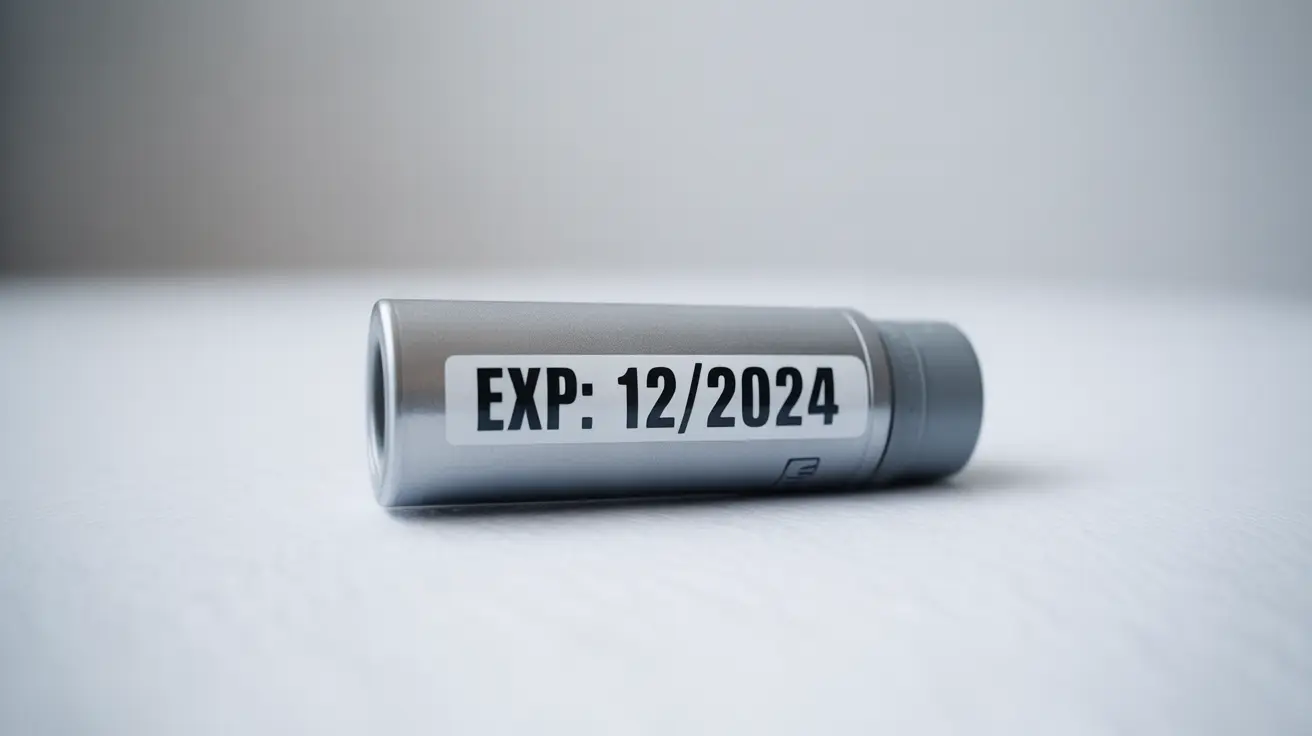For individuals with asthma or other respiratory conditions, having a reliable inhaler is crucial for managing symptoms and potential emergencies. However, many people find themselves wondering about the safety and effectiveness of expired inhalers, especially in urgent situations. Understanding proper inhaler management, including expiration dates and storage, is essential for maintaining optimal treatment effectiveness.
This comprehensive guide explores the implications of using expired inhalers, proper storage techniques, and important considerations for maintaining your respiratory medication's efficacy. We'll help you understand when it's necessary to replace your inhaler and how to ensure you always have access to effective medication.
Understanding Inhaler Expiration Dates
Inhaler expiration dates are carefully determined through stability testing to ensure the medication remains safe and effective. These dates indicate when the manufacturer can no longer guarantee the product's full potency and safety. The expiration date can typically be found printed on both the canister and the packaging.
Most inhalers are designed to maintain their effectiveness for about 12 months after manufacturing, though some may last longer. It's important to note that the expiration date applies to both the medication and the delivery device itself.
The Risks of Using Expired Inhalers
Using an expired inhaler can present several potential risks:
- Reduced medication potency
- Inconsistent medication delivery
- Possible bacterial contamination
- Chemical degradation of active ingredients
- Mechanical failure of the device
These issues can be particularly concerning during an asthma attack or other respiratory emergencies when reliable medication delivery is crucial.
Storage and Maintenance Guidelines
Proper storage significantly impacts an inhaler's effectiveness and longevity. Follow these essential guidelines:
- Store at room temperature (between 68-77°F)
- Keep away from direct sunlight
- Avoid exposure to extreme temperatures
- Protect from moisture
- Store upright with the cap secured
- Keep away from heat sources
Regular cleaning and maintenance of the inhaler device, particularly the mouthpiece, also helps ensure proper functioning and prevents contamination.
Emergency Situations and Expired Inhalers
While it's never ideal to rely on an expired inhaler, understanding their potential use in emergencies is important. An expired inhaler may still contain some active medication, though its effectiveness cannot be guaranteed. In a true emergency with no other options available, using an expired inhaler might be better than having no medication at all.
However, this should never be considered a long-term solution. Always consult with your healthcare provider about proper emergency planning and maintaining a current supply of medication.
Prevention and Management Strategies
To avoid situations involving expired inhalers, implement these preventive measures:
- Regular medication inventory checks
- Setting renewal reminders
- Maintaining backup inhalers
- Establishing automatic refill programs
- Regular healthcare provider consultations
Frequently Asked Questions
1. Is it safe to use an expired inhaler in an emergency if I don't have access to a new one? While not ideal, an expired inhaler might provide some relief in an absolute emergency. However, its effectiveness cannot be guaranteed, and you should seek medical attention and a new inhaler as soon as possible.
2. How does improper storage affect the expiration and effectiveness of asthma inhalers? Improper storage can significantly reduce an inhaler's effectiveness before its expiration date. Exposure to heat, cold, or moisture can degrade the medication and potentially damage the delivery mechanism.
3. What are the potential risks and benefits of using an expired inhaler for asthma treatment? The main risk is reduced or unpredictable effectiveness of the medication. While an expired inhaler might still contain some active ingredient, its potency and reliability cannot be guaranteed, potentially leaving you vulnerable during an asthma attack.
4. How often should I check the expiration date of my asthma inhaler, and what should I do if it's expired? Check your inhaler's expiration date monthly and mark it on your calendar. If you find an expired inhaler, contact your healthcare provider immediately for a replacement prescription.
5. What are the best practices for storing inhalers to maximize their shelf life and effectiveness? Store inhalers at room temperature, away from direct sunlight and moisture. Keep them upright with the cap secured, and avoid exposure to extreme temperatures. Clean the mouthpiece regularly according to manufacturer instructions.




